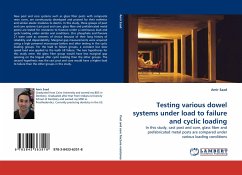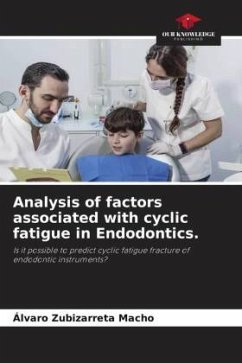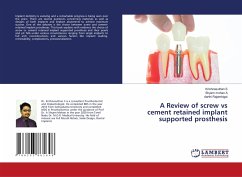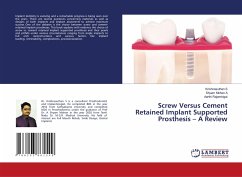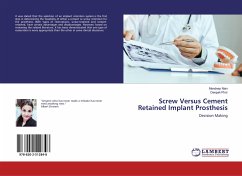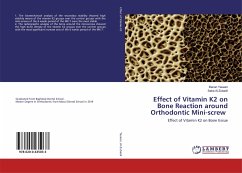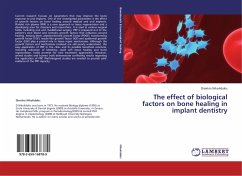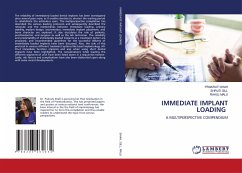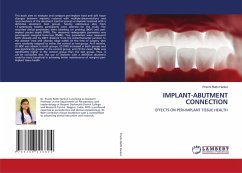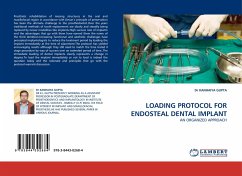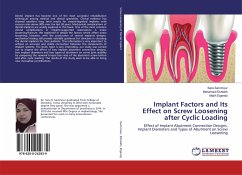
Implant Factors and Its Effect on Screw Loosening after Cyclic Loading
Effect of Implant Abutment Connection Designs, Implant Diameters and Types of Abutment on Screw Loosening
Versandkostenfrei!
Versandfertig in 6-10 Tagen
36,99 €
inkl. MwSt.

PAYBACK Punkte
18 °P sammeln!
Dental implant has become one of the most successful rehabilitation techniques among medical and dental specialties. Clinical evidence has showed excellent long term results for osseointegrated implants with success rates above 90% over the last 30 years. Mechanical complications of dental implants are widely explored in this book. One of the most common clinical complications in implant-supported restorations is screw loosening/fracture. We explained in details the factors which affect screw loosening; however, with the production of several implants designs, mechanical testing still provide ...
Dental implant has become one of the most successful rehabilitation techniques among medical and dental specialties. Clinical evidence has showed excellent long term results for osseointegrated implants with success rates above 90% over the last 30 years. Mechanical complications of dental implants are widely explored in this book. One of the most common clinical complications in implant-supported restorations is screw loosening/fracture. We explained in details the factors which affect screw loosening; however, with the production of several implants designs, mechanical testing still provide valuable guidance for clinicians in choosing the dental implants for their patients. This information is very important to achieve an accurate and stable connection between the components of implant systems. The book topic is very interesting, our study was carried out to inspect the effect of two implant abutment connection designs, two implant diameters and two types of abutment on screw joint stability by comparing the removal torque loss ratio of the abutment screw before and after cyclic loading. The results of this study seem to be able to bring new innovative contributions.



